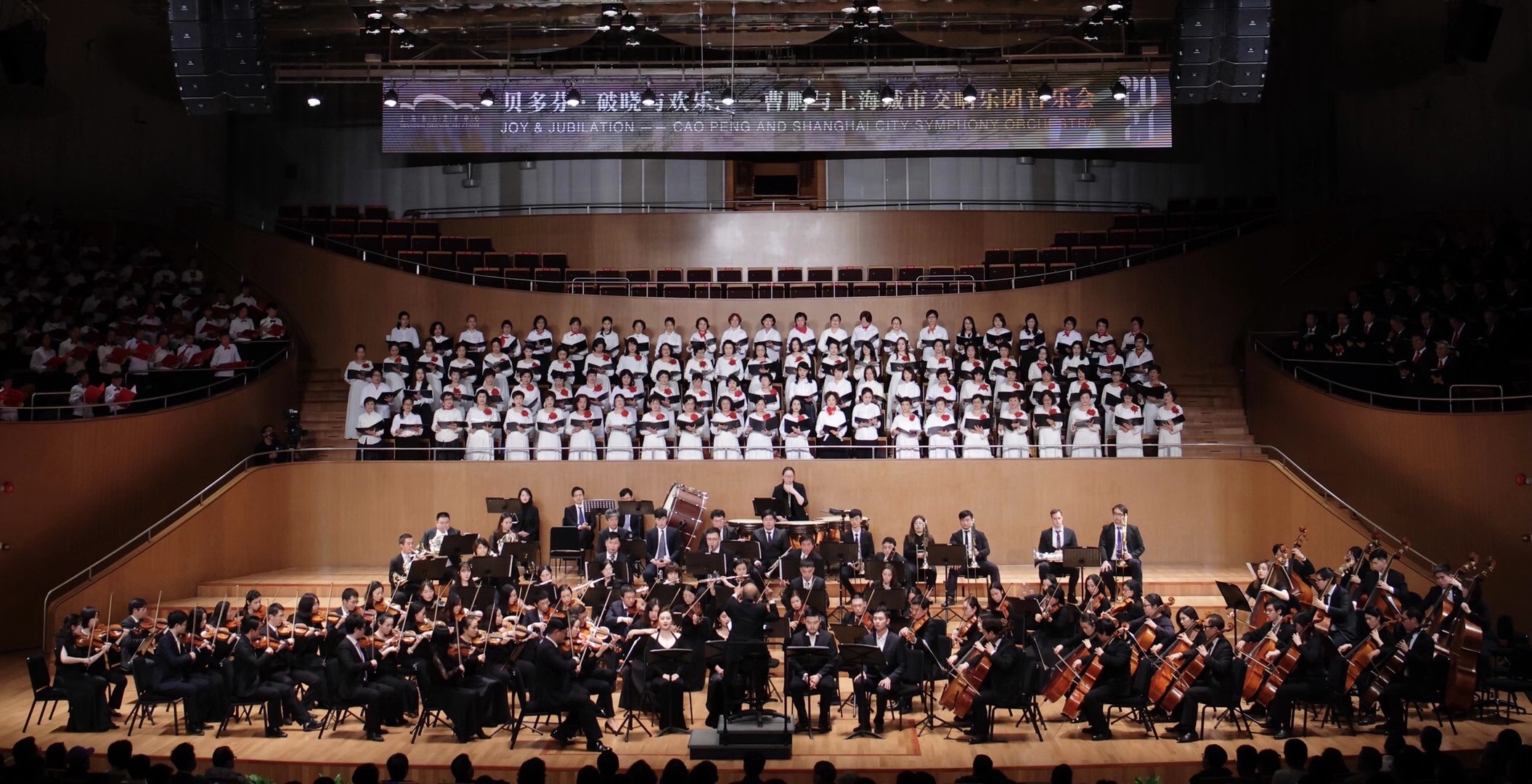Symphony No.3 in E flat, Op.55 “Eroica”
The three best Beethoven symphonies in my mind – No.3, 7, and 9, are indistinguishable.
Started with his Symphony 3, that was 2009 when I first got into the orchestra, which I could hardly recognized the alto clef since I just switched from violin to the viola at that moment.
Beethoven born on 1770 under the era of classical music, so his early style was impacted by Mozart and Haydn greatly by looking at his very first two symphonies. The third symphony was indeed a break point for him. For me, that was the time he started finding his own style and creating a new form of music, a landmark transition to the Romantic era as well.
This piece was meant to be written to Napoleon. But when Beethoven heard that Napoleon had crowned himself Emperor of France, he erased the title of “To Napoleon” and changed it to “To a great man”.
I feel that I have become a hero when I performing it, and I exhausted all my emotional power till the end. It is so easy to be touched by the profound and restrained sadness from the first and second movement. During the third movement, when you just clean up all your emotions, the storm at the beginning of the fourth movement comes over immediately.
In short, it’s a long journey full of twists and turns, my shirt is already wet after this. Whether I’m playing or listening it, the hero can make people deeply into it.
Besides! I have to mention his Egmont Overture is my favorite piece asides from all of symphonies. Here’s a link of from Karajan edition, always classical.
Symphony No.7 in A major, Op.92
I listened his seventh a lot recently, especially the second movement. It is a relatively slow one but it’s the most perfect interpretation of perseverance in my heart. Beethoven used his amazing notes to describe how to walk against the wind, never giving up in a desperate situation, and there is a lot of loneliness, but filling and growing up with encouragement and confidence.
It sounds a little bit shallow since this scene occurs a lot in our childhood writing classes :/ - A cliché way of describing how we deal with difficulties and challenges. But we cannot underestimate the power of music from Beethoven.
From one point of view, I often describe Beethoven’s music is a perfect mirror of himself. How he fought with fate, questioned himself and dealing with all the struggling as he started losing his hearing.
In the movie The King’s Speech, this second movement from Symphony No.7 was used at the end of the movie. The music begins when King George VI delivering his lively speech to the British Empire. It was when Hitler invading Poland upon the World War II. As one of the Allies, the United Kingdom was about to join the war, the entire nation would be plunged into a catastrophe. The beginning of the music is slow and heavy, just like the king and British people, they need to face incoming difficulties. Every time the melody is repeated, the atmosphere is pushed up to a higher layer, until to the final climax. The last sentence from the king “We shall prevail” perfectly echoes with the music. The tone and pace of this music fits the scene perfectly. That was beautiful, both the speech and the music. It’s so powerful.
As someone who championed freedom and liberty, Beethoven would must have been proud for his music to accompany this scene, and hits my soul.
Symphony No.9 in D minor, Op.125
The finale has the highest energy of all. It’s going from suffering, Beethoven’s pure suffering to transcending, which is why the end is so glorious. It was his finding his meaning of life, from wanting to kill himself, because he was suicidal - he was deaf and he’s a musician. After experiencing almost all the joys and sorrows in the world, he finally had this dialogue with God, and all the way to that victory.
From another perspective to see his music, Beethoven seems to be in the same space as our spiritual high-dimensional realm, discusses philosophical questions about peace and freedom. After so much unfortunateness, he still wanted to send the best blessings to the world and praised those human virtues at the end of his life.
As one of the lyrics in the fourth movement says “Seid umschlungen, Millionen! Diesen Kuß der ganzen Welt!” (“You millions, I embrace you. This kiss is for all the world”). He’s definitely one of the greatest musicians in human history.
Beethoven was actually a misanthrope, and he hated the injustice, strife, and oppression of reality, and this strong emotion is most evident in his works of the “heroic” period.
In his later works, he began to open his heart to embrace the world. He incorporated the pursuit of equality and freedom into his works, with his heroic fraternity, and used his music to construct the ideal world of no murder, war, barbarism.
Beethoven’s hero, is actually himself, and his late works are still full of power, but this power is inspiring the union of human and move towards the future. This is joy, the joy of Beethoven!
